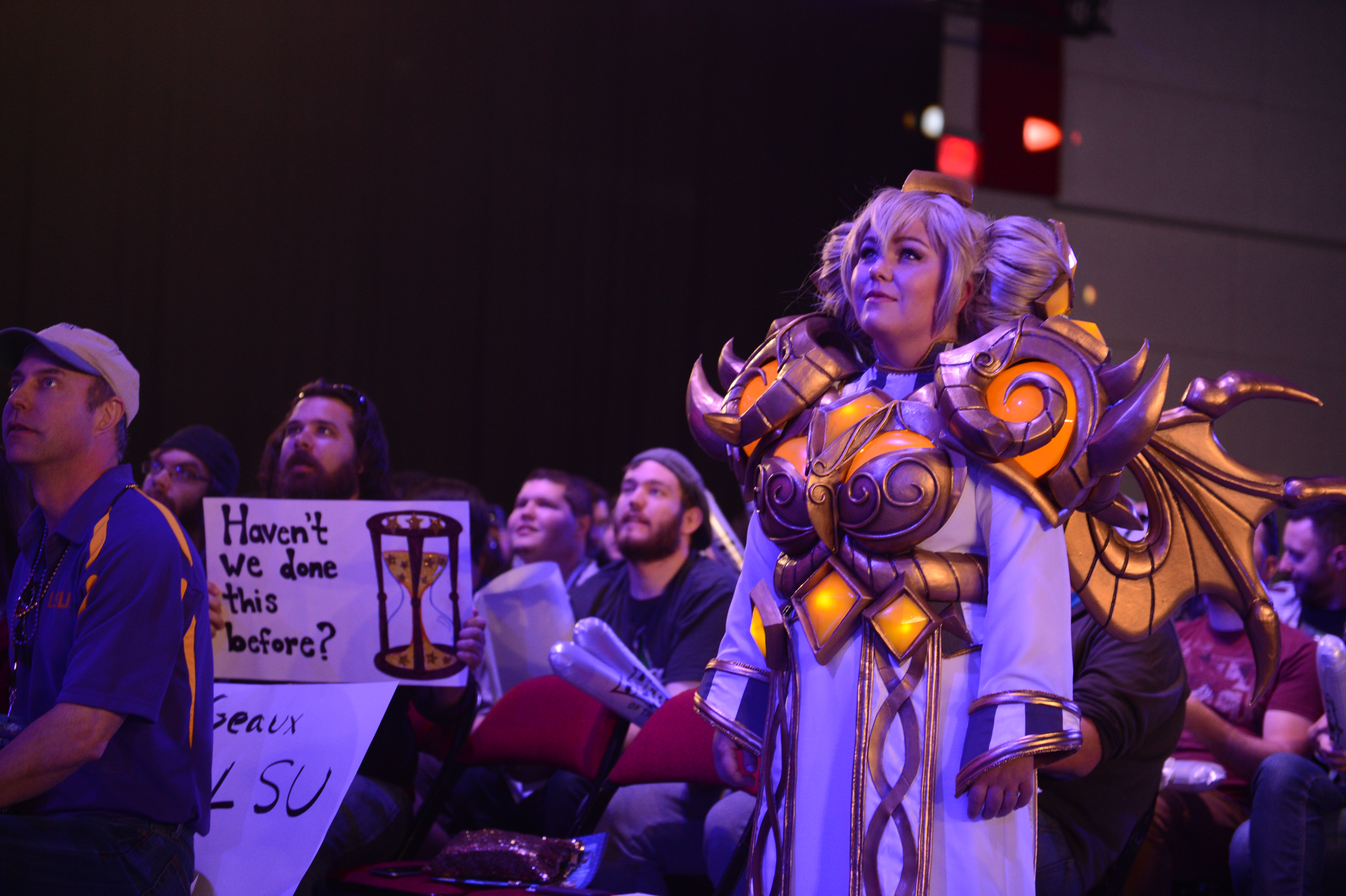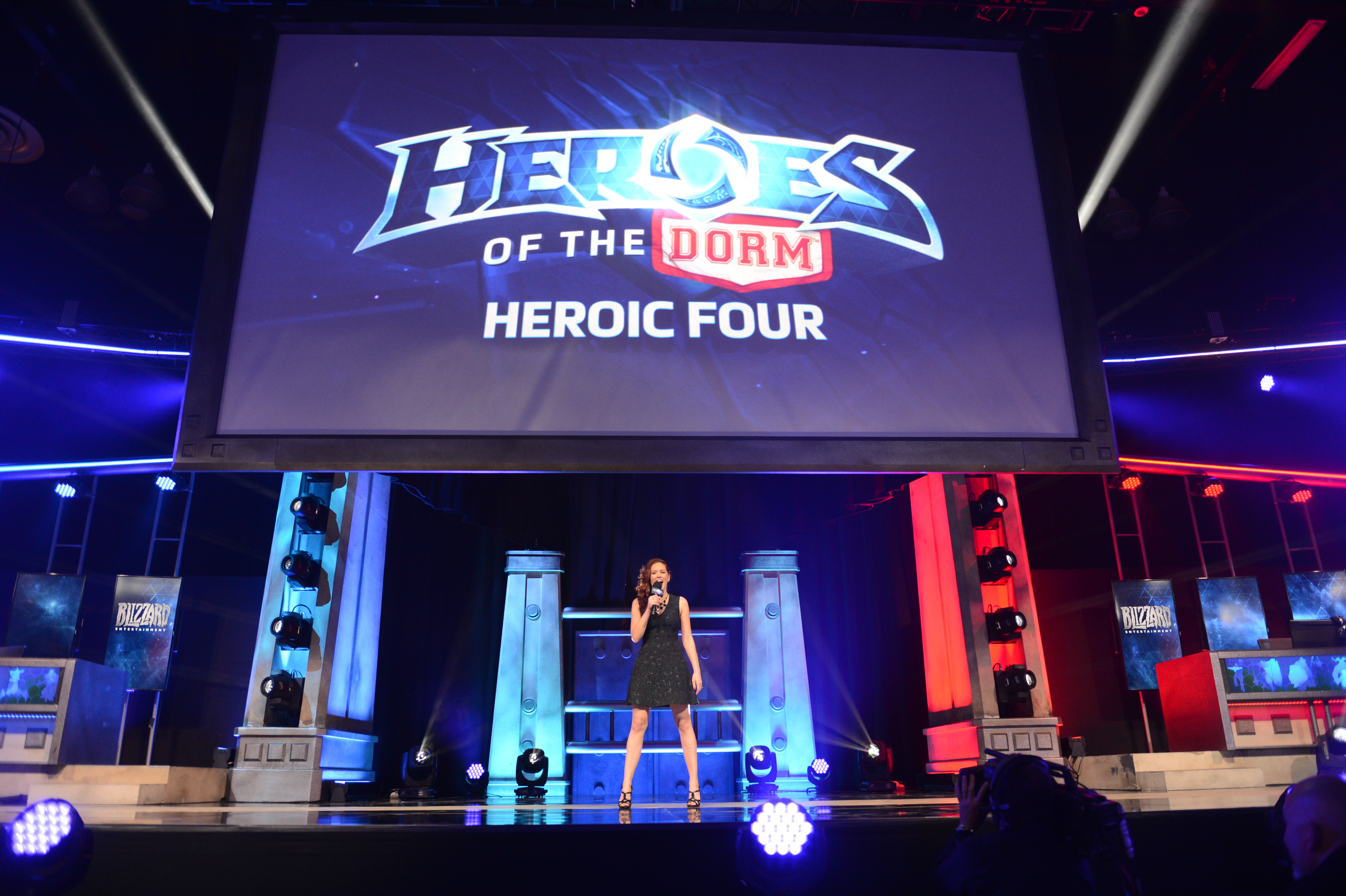
Just over three years ago, ESPN2 confused a whole lot of its regular viewers by broadcasting handfuls of college kids playing video games against each other instead of the usual bowling, billiards, poker, waterskiing, and other expectedly obscure sports. But while the finale of the inaugural Heroes of the Dorm tournament left traditionalists and meatheads befuddled and frustrated, it also marked a groundbreaking moment in gaming history as the first esports broadcast on a major television network.
In the years since, Blizzard Entertainment’s Heroes of the Storm has grown into one of the biggest multiplayer online battle arena (or “MOBA” in the gaming community) games in the world. Its annual centerpiece, Heroes of the Dorm, continues to expand each year as one of the biggest collegiate tournaments in all of esports, and now it’s taking its final four to the big stage at Blizzard Arena for the first time this weekend.
“We are offering a nationwide competition for schools to compete against each other to see who has the best team for this game, and Heroes of the Dorm is unique when it comes to college competitions because it offers full tuition for the winning team’s college career,” says Adam Rosen, Blizzard’s Senior Business Operations Manager. “The other thing about Heroes of the Dorm is the size and scope of this competition. This year, we have hundreds of universities competing against other universities within their region. On a lot of levels, it’s kind of like what you’d expect from any other college sports competition.”

For those unfamiliar with Heroes of the Storm, it’s essentially a 5-on-5 online game in which each team tries to destroy their opponents’ base on the other side of the map. With close to 100 different characters to choose from and over a dozen maps, the skill requirements for competitive players comes not only in the technical abilities of playing the game, but also the appropriate selection of roles and teamwork. The variety alone is one aspect that’s made games like Heroes of the Storm and LA-based Riot Games’ League of Legends popular over the last decade, and it also adds an extra level of strategy and intrigue every time high-level teams battle it out.
“Players have to work together to use the combination of their special abilities, teamwork, communication, and strategies to be able to outmaneuver and outplay their opponents,” Rosen says. “What makes Heroes of the Storm really interesting to watch is that it’s so much about teamwork. You can have a team of the best players in the world as individual players, but if they’re unable to work together and communicate effectively — or if they don’t trust each other or cooperate — they’re not going to do well. What we see is that the teams with the best overall teamwork and the teams that do the best job working together are the teams that will come out on top.”
Regardless of what kinds of record turnouts they have this weekend at both Blizzard Arena and their dedicated Twitch livestream, the folks behind Heroes of the Dorm already know they’ve cemented the event’s role in esports history with that first broadcast. Even with the success of their flagship games like World of Warcraft, Diablo, and now Overwatch, the Irvine-based company can’t help but appreciate how one of their lesser-known titles sparked one of the very first nationwide debates over esports — particularly on mainstream social media. Although it’s hard to believe that competitive gaming wouldn’t have eventually caught on with a good chunk of the general public eventually, there are rarely times in an industry’s history where you can look back merely a few years and see the moment that transformed everything.
“Our whole team is very proud of the rich history that Heroes of the Dorm has and the role that has played in the evolution of esports,” Rosen says. “Heroes of the Dorm is going on its fourth year, and when we look back at the very first program, esports as a whole was in a very different place. In general, there wasn’t a broad amount of understanding about what esports was all about, and there was also a lot of hesitation. When we broadcast the first Heroes of the Dorm on TV, we had a group of people speak out and say ‘Wow, I don’t know what this is, but it’s awesome!’ and then there was another group that said ‘This is not sports! There’s no ball! Get it off ESPN!’ We started the national dialogue about what the role of competitive gaming is and how it fits in, and I think it shined a really big spotlight on esports as a whole.”

Josh Chesler used to play baseball for some pretty cool teams, but now he just writes about awesome stuff like tattoos, music, MMA and sneakers. He enjoys injuring himself by skateboarding, training for fights, and playing musical instruments in his off time.

